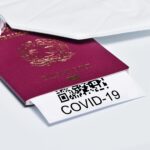Ace Your Canadian Job Search: Proven Resume Writing Tips for Newcomers
Table of Contents:
- Introduction
- Understanding the Canadian Resume Landscape: A Crucial First Step
- Essential Resume Components: Structuring for Success
- Highlighting Transferable Skills: Bridging the Gap
- Addressing Language Proficiency: Communicating Clearly
- Tailoring Your Resume: A Personalized Approach
- Leveraging Canadian Resources: Gaining an Edge
- Common Resume Mistakes to Avoid: Steer Clear of Pitfalls
- Follow-Up Strategies: Seizing the Opportunity
- FAQ
Introduction
Embarking on a job search in a new country can feel overwhelming, especially when navigating unfamiliar resume expectations. For newcomers to Canada, understanding the nuances of Canadian resume writing is paramount. This article serves as a comprehensive guide, offering practical resume writing tips tailored to the unique challenges and opportunities faced by new Canadians. The journey to securing employment begins with a compelling resume. Learning the key elements of a good resume, and understanding what employers seek, is a worthy investment.
Understanding the Canadian Resume Landscape: A Crucial First Step
The Canadian job market operates with its own set of expectations when it comes to resumes. Unlike some other countries, Canadian resumes typically prioritize brevity and relevance. Recruiters and hiring managers often quickly scan resumes to assess a candidate’s suitability. Therefore, it is essential to present your qualifications concisely and directly addressing the job requirements. Understanding these expectations can make all the difference in your job search.
One major difference is the absence of personal information that is common in other regions. For example, you should not include a photo, your marital status, or your religion. This is due to human rights laws protecting candidates from discrimination. Here are some of the essential things to consider:
- Brevity is Key: Aim for a maximum of two pages, focusing on the most relevant experiences and skills.
- Relevance Matters: Tailor your resume to each specific job application, highlighting the skills and experiences that align with the job description.
- Quantifiable Achievements: Whenever possible, use numbers and metrics to demonstrate the impact of your accomplishments.
Essential Resume Components: Structuring for Success
A well-structured resume allows recruiters to quickly grasp a candidate’s qualifications. Here are the essential components of a Canadian-style resume:
- Contact Information: Include your full name, phone number, email address, and LinkedIn profile (if applicable).
- Summary or Objective: A brief statement summarizing your key skills and career goals. For experienced professionals, a summary is generally preferred.
- Work Experience: List your previous jobs in reverse chronological order, detailing your responsibilities and achievements. Use action verbs to describe your accomplishments.
- Education: Include your degrees, diplomas, and relevant certifications. If you have international credentials, consider having them assessed for Canadian equivalency.
- Skills: List both hard skills (technical abilities) and soft skills (interpersonal skills). Tailor this section to the specific requirements of the job.
Highlighting Transferable Skills: Bridging the Gap
Newcomers to Canada may have valuable experience from their home countries that is directly applicable to the Canadian job market. Transferable skills are abilities and expertise that can be applied across different roles and industries. Highlighting these skills is crucial for bridging the gap between international experience and Canadian employer expectations. For example, project management, customer service, communication, and problem-solving are always highly valued.
When showcasing transferable skills, be sure to:
- Identify Relevant Skills: Analyze the job description and identify the key skills and qualifications required.
- Provide Specific Examples: Use specific examples from your previous experiences to demonstrate how you have used these skills successfully.
- Use Action Verbs: Start your descriptions with strong action verbs to emphasize your accomplishments.
Addressing Language Proficiency: Communicating Clearly
Strong English or French language skills are often a prerequisite for employment in Canada. Clearly communicate your language proficiency on your resume. If you have taken language proficiency tests like IELTS or CELPIP, include your scores. Even if you are still improving your language skills, mentioning your efforts to learn and improve shows initiative and dedication. Remember to maintain impeccable grammar and spelling throughout your resume.
Tailoring Your Resume: A Personalized Approach
One of the biggest mistakes job seekers make is using a generic resume for all applications. Tailoring your resume to each specific job is essential for capturing the attention of recruiters and hiring managers. Carefully review the job description and identify the key skills, qualifications, and experience required. Then, customize your resume to highlight the aspects of your background that are most relevant to the job. By demonstrating that you understand the specific needs of the employer, you increase your chances of landing an interview.
Leveraging Canadian Resources: Gaining an Edge
Canada offers a wealth of resources to help newcomers with their job search. Government-funded employment services, newcomer centers, and settlement agencies provide resume writing assistance, interview coaching, and job search workshops. Taking advantage of these resources can give you a significant edge in the competitive job market. Many libraries also offer free access to online resources and workshops.
Common Resume Mistakes to Avoid: Steer Clear of Pitfalls
Avoiding common resume mistakes is just as important as including the right information. Here are some pitfalls to avoid:
- Typos and Grammatical Errors: Proofread your resume carefully to catch any errors. Ask a friend or family member to review it as well.
- Generic Language: Use specific and quantifiable examples to demonstrate your achievements. Avoid vague or generic statements.
- Irrelevant Information: Focus on the skills and experiences that are relevant to the job you are applying for. Omit any unnecessary details.
- Inconsistent Formatting: Use a consistent font, font size, and formatting throughout your resume.
Follow-Up Strategies: Seizing the Opportunity
Submitting your resume is just the first step in the job search process. Following up with employers after applying can significantly increase your chances of getting an interview. Send a brief email to the hiring manager or recruiter, reiterating your interest in the position and highlighting your key qualifications. Be polite, professional, and respectful of their time. A well-timed follow-up can demonstrate your enthusiasm and set you apart from other candidates.
FAQ
What is a transferable skill? Transferable skills are abilities and expertise that can be applied across different roles and industries. Examples include project management, customer service, communication, and problem-solving, which are highly valued in many Canadian workplaces.
How long should a Canadian resume be? A Canadian resume should ideally be no more than two pages, focusing on the most relevant experiences and skills. Recruiters and hiring managers often quickly scan resumes, so brevity is important.
How can I showcase my language proficiency on my resume? Clearly communicate your language proficiency by including scores from language proficiency tests like IELTS or CELPIP, if you have taken them. Mentioning your efforts to learn and improve shows initiative and dedication, even if you are still improving your language skills.
Why is tailoring my resume important? Tailoring your resume to each specific job is essential for capturing the attention of recruiters and hiring managers. Carefully review the job description and customize your resume to highlight the aspects of your background that are most relevant to the job.
Talk to us to find out more. ->
The content above is not intended to provide legal advice or opinions of any kind and may not be used for professional or commercial purposes.






